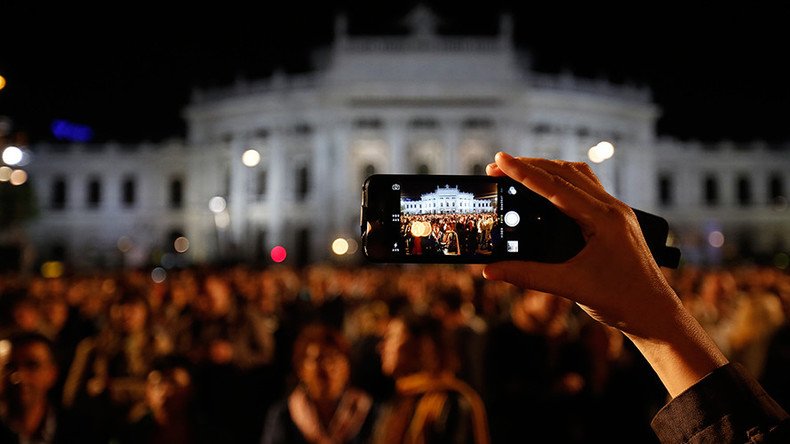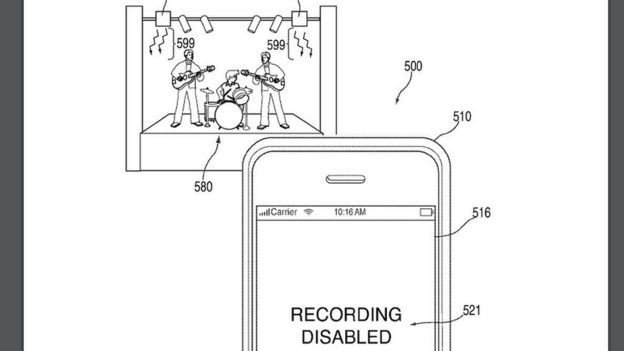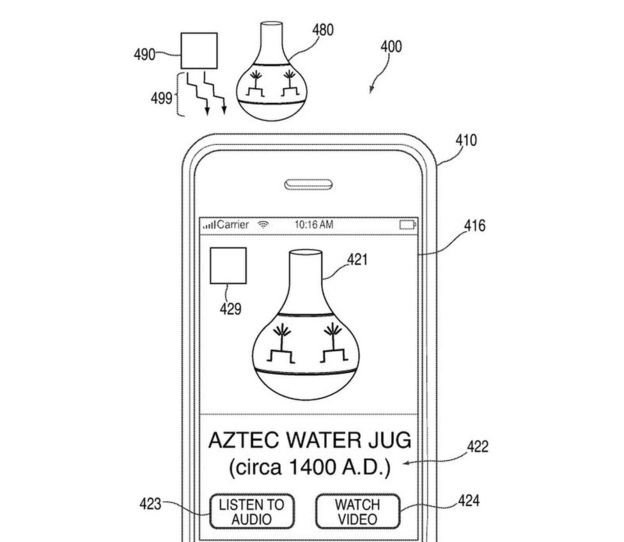Camera police? Apple might soon make it possible to block recording video at concerts

Like recording live shows with your iPhone? A new patent granted to Apple details a new method of shutting down such behavior without the owner’s consent, raising concern about the possibility of the technology being used for censorship.
The patent, which Apple acquired Wednesday, describes an iPhone camera design capable of receiving infrared signals in order to prevent the illegal recording of events such as concerts.
"An infrared emitter can be located in areas where picture or video capture is prohibited, and the emitter can generate infrared signals with encoded data that includes commands to disable the recording functions of devices,” the patent says. “An electronic device can then receive the infrared signals, decode the data and temporarily disable the device's recording function based on the command."

The ability for personal devices to be disabled by a third party will certainly be controversial among iPhone users who don’t want their devices to be accessed or cameras to be turned off.
The patent, first filed in 2011, also details expanded functionality that could come with the system such as the ability for iPhone users in museums to receive additional information as they look at art installments in museums.

But even if this technology expands phone functionality enough to be seen as a net gain by consumers, civil liberties advocates may still be against the technology due to its ability to shut down the covering of protests by citizens.
A high-profile example of protesters using smartphones to spread their message could be seen last week by House Democrats, who held a 24-hour sit-in demanding that Republicans agree to their controversial plan to bar those on the no-fly list from owning guns.
Because the unprecedented protest put the house in recess, C-SPAN’s camera stopped broadcasting the activity within the chamber, leading the representatives to use video streaming services from their phones such as Facebook Live and Periscope.
If the Capitol building was equipped with the technology that Apple has proposed, the protest could have gone completely dark.
Earlier in June, civil liberties advocates had fears stoked by another type of technology being used to manage concert crowds: facial recognition.
READ MORE: Biometric cameras scan festival-goers’ faces to target ‘organized criminals’
Leicestershire, England police placed facial recognition cameras at “strategic” locations around Derby’s Download Festival to capture visitors’ faces. The images captured were then compared with mugshots of criminal suspects from across Europe, marking the first time biometric technology has been used in such a venue.
Privacy rights campaigners worry that the use of biometric cameras to scan the faces of unsuspecting festival-goers breaches their basic right to privacy.
“It’s one thing to pay good money to think you’re going to enjoy yourself at a festival,” Big Brother Watch Chief Executive Renate Samson told Vice.com. “To then unknowingly find that your face is being scanned using biometric technology and compared with a database of people in custody from across Europe takes the edge off the fun.”
Apple did not immediately respond to RT America’s request for comment.












